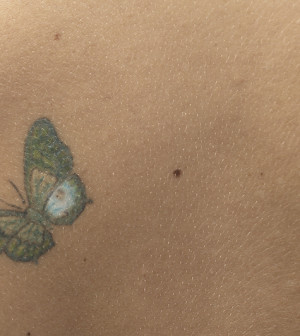- The Best Time of Day to Drink Bone Broth to Maximize Health Benefits
- 8 Ways to Increase Dopamine Naturally
- 7 Best Breads for Maintaining Stable Blood Sugar
- Gelatin vs. Collagen: Which is Best for Skin, Nails, and Joints?
- The Long-Term Effects of Daily Turmeric Supplements on Liver Health
- Could Your Grocery Store Meat Be Causing Recurring UTIs?
- Are You Making This Expensive Thermostat Error This Winter?
- Recognizing the Signs of Hypothyroidism
- 10 Strategies to Overcome Insomnia
- Could Artificial Sweeteners Be Aging the Brain Faster?
College Women: Have a Healthy Spring Break


Spring break offers college women — and men — a welcome respite from the pressures of school, but they need to make sure they protect their health while having fun.
For women looking ahead to spring break, the U.S. Food and Drug Administration offers a number of tips, starting with sun safety.
Wear a hat and protective clothing, and stay in the shade as much as possible. Use sunscreens that protect against UVA and UVB rays and have an SPF of 15 or higher. Reapply sunscreen at least every two hours, or every 40 to 80 minutes when swimming or sweating.
If you use spray tans or bronzers, understand that they do not protect against UV rays.
If you take medications, get information about them before you go on your trip. For example, ask your doctor about possible side effects and interactions. Don’t skip doses, don’t share medication and don’t take more than the recommended dose. Keep a detailed list of the medicines you’re taking and carry your medicine with you when traveling.
Be sure to drink enough water to stay hydrated. If you plan to spend a long time at the beach, for instance, be sure to bring water and drink even before you’re thirsty. Avoid ice or tap water in regions where water isn’t safe for drinking. If safe drinking water isn’t available, consume an internationally known brand of a sugar- and caffeine-free carbonated beverage, said Shirley Blakely, a senior nutrition advisor at the FDA.
Healthy eating is also important. To get enough fiber and other essential nutrients, fill half your plate with fruits and vegetables and be sure that half of your grains are whole.
“If you’re faced with a smorgasbord, build your plate with fruits, vegetables and whole grains first, then add the protein source,” Blakely said in an FDA news release.
Think twice about getting a permanent tattoo or temporary henna decorations. Tattoos can cause allergic reactions and put you at risk for infections such as HIV or hepatitis. Henna is not approved by the FDA for skin use, and some people have experienced serious problems, including allergic reactions such as rashes and scarring.
Never use colored or decorative contact lenses sold in beauty-supply stores and in boardwalk shops. These products can damage your eyes.
More information
The U.S. Centers for Disease Control and Prevention offers more spring break health and safety tips.
Source: HealthDay
Copyright © 2026 HealthDay. All rights reserved.










